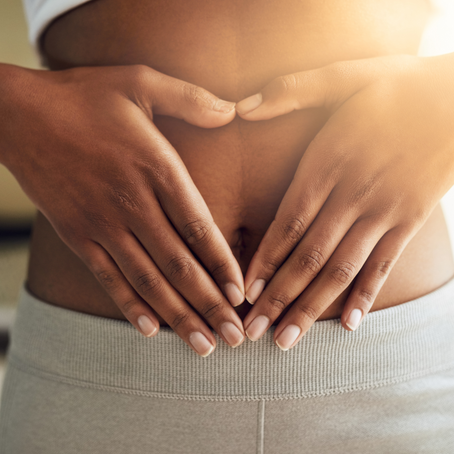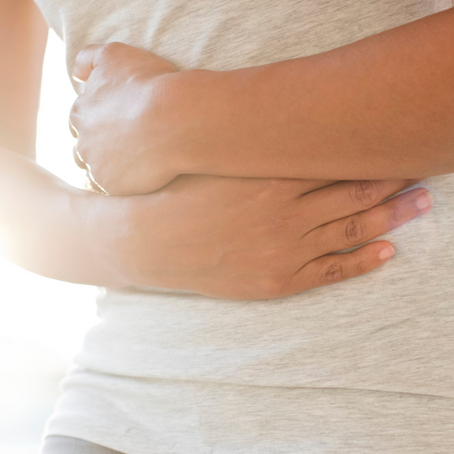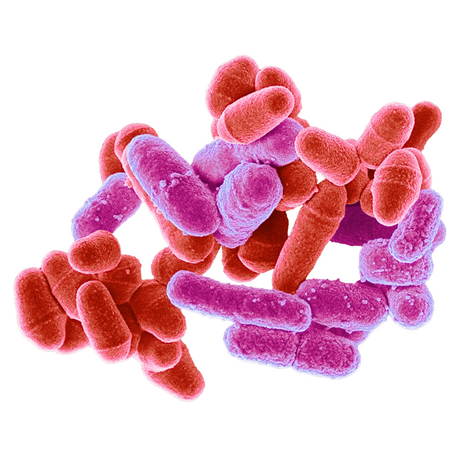Unfortunately, IBS often has no permanent cure. However, the good news is that there are effective ways to manage and reduce symptoms.
2 STEP SOLUTION
STEP 1 - ELIMINATE TRIGGERS
There are many things that can trigger IBS symptoms. The most common trigger is food.
Food Triggers
The most effective way to manage IBS symptoms is by identifying and eliminating foods that trigger you. For some people, certain foods can cause excess gas, bloating, or digestive issues. By pinpointing and removing these triggers, you can give your gut a chance to reset and reduce symptoms.
Using our Eliminate Meal Replacement is an easy, fail proof way to identify which foods might trigger you and help you safely remove these from your diet.
Stress Triggers
Because of the gut-brain connection, stress in our daily lives can directly impact gut health. Worries—whether from work, relationships, or other pressures—can make the gut hypersensitive, so other triggers become more of an issue. Stress may also cause excess stress hormones (like cortisol) to flood the body, increasing IBS symptoms. The more stress we experience, the more intense our gut symptoms may become.
Keeping a journal can help you identify patterns between stress and symptoms. Track when symptoms appear and reflect on any stressors in your life at the time. Over a few weeks, you may notice connections—such as worsening cramps before a big deadline or diarrhoea after a stressful conversation. Recognising these links can help you manage stress more effectively and reduce symptoms.
Relaxation Techniques
Breathing exercises, meditation, or yoga can be powerful tools for managing stress. There are many great YouTube videos and apps that offer guided relaxation techniques to help you get started. Even if the source of your stress remains, making time for daily relaxation exercises can help lower stress levels and, in turn, reduce stress-related gut symptoms.
Exercise
Regular exercise is a proven way to reduce stress levels. It helps lower the production of stress hormones like adrenaline and cortisol, while promoting the release of endorphins, the body's natural "happy" hormones. Exercise also supports healthy bowel function. Even small bursts of activity can make a difference—whether it's a 15-minute walk, gardening, vacuuming, playing with the kids, or enjoying a game of tennis. Every bit of movement counts!
Improve your sleep
Getting a good 8 hours of quality sleep helps with stress management, hormone control and healthy digestion. To improve your sleep quality try the 3-2-1 rule;
✔ 3 hours before bed - no more food, caffeine or alcohol
✔ 2 hours before bed - no more work
✔ 1 hour before bed - no more screens
STEP 2 - ALLEVIATE SYMPTOMS
Once you have minimised anything that might be triggering your symptoms, things can be done to help alleviate your remaining symptoms. Here are some evidence-based ways to help ease discomfort:
Pre-Biotic Fibre
Not all fibre is created equal, especially when it comes to gut health. The low FODMAP prebiotic fibres found in Alleviate—Partially Hydrolysed Guar Gum and Fibresol—have been clinically proven to help ease IBS symptoms.
How do prebiotics work?
✔ Feed the good bacteria while reducing the growth of harmful bacteria.
✔ Help balance water absorption in the gut—keeps stools soft (preventing constipation) but not too loose to avoid diarrhoea.
✔ Reduce bloating, cramps, and wind by digesting slowly and minimising excess gas.
✔ Support mood-enhancing hormones like serotonin, reducing stress that can worsen symptoms.
Prioritise your sleep
Your gut and brain are closely connected, and poor sleep can make digestive issues worse. Aim for around 8 hours of deep, uninterrupted sleep each night to help your body regulate digestion and reduce gut discomfort.
Eat Slowly
How you eat is just as important as what you eat. Eating too quickly can overwhelm your digestive system, leading to bloating and discomfort.
Try the 20-20-20 rule to support better digestion:
✔ Chew each bite for 20 seconds
✔ Put your fork down for 20 seconds between bites
✔ Take at least 20 minutes to finish your meal
This simple habit helps reduce the strain on your gut and promotes better digestion.
Reduce caffeine intake
Caffeine is a known laxative and can disrupt the fluid absorption in your gut, leading to loose stools or increased urgency. If you notice caffeine worsens your symptoms, consider cutting back or eliminating it to see if your gut feels better.
Apply gentle heat
A warm heat pack or hot water bottle on your stomach can help relax muscles, easing cramps and bloating. Heat encourages blood flow and muscle relaxation, providing natural relief for gut discomfort.
Peppermint oil
Research suggests that a peppermint oil capsule may help soothe gut muscles and relieve cramps due to its antispasmodic properties.
For best results:
✔ Take 0.2ml up to three times daily
✔ Use enteric-coated capsules to ensure the oil reaches your intestines rather than dissolving in the stomach
Consider Gut Directed Hypnotherapy
Your gut and brain communicate constantly, and stress or anxiety can worsen digestive symptoms. Gut-directed hypnotherapy is a science-backed technique that helps retrain this gut-brain connection, leading to symptom relief.
Working with a specialised Gut-Directed Hypnotherapist, like those at the MacMurray Centre, may help manage chronic gut symptoms by reducing stress-related flare-ups.


